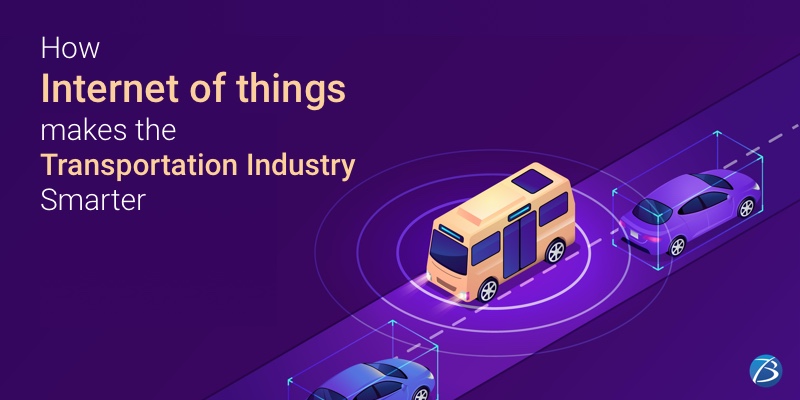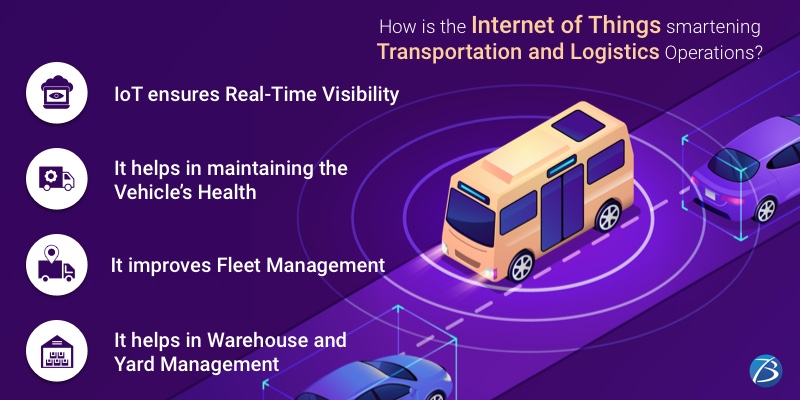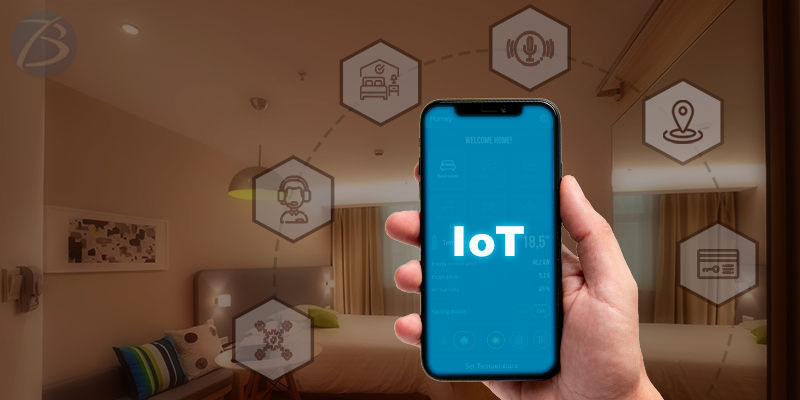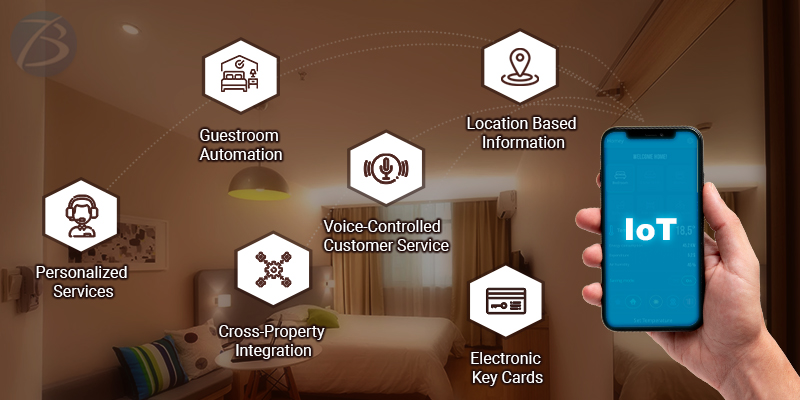How IoT Makes the Transportation Industry Smarter


If the safety of your vehicles, employees, and passengers is a concern, if you are facing issues in the business process improvement, if the rising cost of operation is threatening your profitability, then the internet of things i.e. IoT in your transportation business could be the right solution as it is transforming the way this industry operates.
Internet of things continues to dominate the future of several businesses and the transportation industry is no exception. As per IoT analytics, Inc. (the online portal that engages in researching about IoT market insights), the IoT market is booming despite the adverse impact of the Covid19 pandemic on most related sectors. The total number of connected IoT devices will reach approximately 27 billion by the year 2025. These are pretty big numbers and the future seems bright.
IoT in the transportation industry uses a network of centrally connected devices with sensors, GPS, electronic monitors, RFID systems, etc. to ensure real-time visibility. These devices are connected to vehicles or off-road locations like owners or/and customer’s warehouses, offices, or stores. Thus, the internet of things enhances operational efficiency.
It is interesting to know how the internet of things is contributing to smarter transportation systems and ultimately a smarter world. The top benefits and use cases are as follows.
Benefits and Use Cases in the Transportation and Logistics Industry

IoT ensures Real-Time Visibility
Transparency is a game-changer in the transportation and logistics industry. Internet of things makes operations transparent by providing real-time visibility. Issues like truck weight management, delays in traveling, energy and resource management, performance monitoring, location tracking, and safety management can be handled well.
The significance of real-time visibility is especially felt in the trucking and freight shipping business. If your freight bills are rising or you feel your truck drivers aren’t loyal to you, then internet of things can help to keep a track of the freight. An ideal example of the implementation of IoT in transportation is a software solution named AppWeigh. It is a specially designed smart app that measures the load on trucks throughout their shipment and sends the information to the owners on their smartphones. If the load on a truck is reduced or increased beyond the limit, then the owners immediately get notified. They can ensure that their goods are transported legally and safely to the destination. AppWeigh uses technologies like beacon integration, Bluetooth-enabled sensors, geo-location tracking, etc.
It improves Fleet Management
Internet of things strengthens the operations in fleet management – maintenance of vehicles, their financing, tracking, diagnostics, management of fuel, management of drivers, and safety management. For instance, special sensors are placed on the trucks that track pressure on the tires, load on the truck, unsafe speeds, or driving patterns and send notify the fleet managers accordingly. It helps the managers to track shipments, manage the drivers, optimize shipping routes and cut costs related to staff inefficiencies.
IoT Fleet management apps provide real-time information about the location of the vehicle using geolocation tracking. After incorporating IoT in the transportation industry, fleet managers can go the extra mile to improve its overall functioning.
It helps Maintenance of Vehicles’ Health
Smart IoT systems developed by smart IoT developers can monitor the wear and tear of vehicles and analyze vehicle health. Barcode scanning, GPS tracking, mobile fuel logs, sensors, camera, etc. are used for this. These provide information about engine health, fuel consumption, and inefficiencies. Some sensors are used to track the temperature of the products, shock and vibration levels, etc. to ensure that the goods are in safe conditions.
Using this information, the business owners can reduce maintenance costs saving thousands of dollars. Any breakdown issues of the vehicles can be detected in advance using IoT the in transportation industry, preventing major damages.
It helps Warehouse and Yard Management
If warehouse and yard management aren’t managed properly, it directly affects the cost of the business. IoT systems use beacon integration, SMS and email notification, BLE connectivity, scanning and detecting sensors, etc. for warehouse and inventory management. They ensure that the right products are placed in the right quantity and the right place at the decided time. These systems reduce human activities and enable machine intervention. They help to automate the tasks which reduces errors caused due to overlooking or visibility-related issues by humans.
IoT in Transportation Minimizes Risks and Increases Profitability
- With real-time information, one can be loyal to their clients by informing them about any delays, changes, cancellations, etc. beforehand. Eventually, this improves customer relationship management (CRM).
- IoT in transportation helps to increase the connectivity of owners and managers with operators and drivers. Thus, they can instantly communicate about any issues ensuring pro-active repairs and maintenance.
- It provides robust security services to passengers and employees along with vehicles, equipment, freight, and data as well.
- Illegal practices by drivers or operators can be easily prevented with the help of the internet of things during transportation. It provides transparent information which helps predictive analytics which can lead to better planning of the resources.
Conclusion
It’s evident why IoT applications are a blessing to the transportation and logistics industry. With so many benefits, transportation is increasingly becoming more dependent on IoT-empowered solutions/systems. It promises extensive profits for logistics operators, business clients as well as end-users.
All you need to do is hire competent IoT app development services for building customized IoT solutions as per your requirements. In this regard, Biz4Solutions, a distinguished Iot app development company is worth a try. We help with crafting and incorporating intelligent transportation systems so that business owners can pull ahead of their competitors and grab higher business opportunities.


